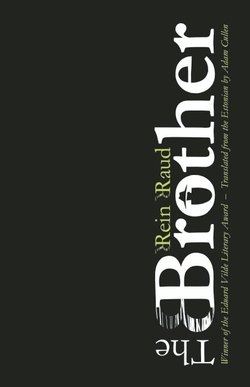Читать книгу The Brother - Rein Raud - Страница 14
На сайте Литреса книга снята с продажи.
Оглавление“At first, my hands would grow weak when I wound up holding some long-familiar item from the Villa. I wondered—how could I put a price tag on a clock that stood on the cupboard and measured my time when I was still a child? How can I set my parents’ five-o’clock-teacups on a table in the shop window when all of the guests peering at them through the glass will still stay thirsty? But now, when I happen to come across an item stolen from my youth, I greet it like an old globetrotting friend who has decided to briefly look me up between his dusty travels to hear how I’m doing, too.”
When he stopped by the antique store the next evening, Brother had a chance to gaze upon the Villa’s silver spoons with his own eyes. Laila was pleased that he had been able to get some rest even on the narrow spare bed in the kitchen, since now, in the daylight, his cheeks no longer looked hollowed and the shadows under his eyes had disappeared.
“All people do here is flirt during the most lucrative opening hours; we’re running a business here, by the way,” grumbled the goateed antiquarian, dusting a heavy swan four times larger than life (that no one would ever buy, anyway). In fact, his claim was completely false, because other than during the town’s annual fair, only ten or so people would stumble into the dark and somewhat musty shop each week, at best. Not counting the pharmacist, who would occasionally visit to play chess in the afternoons, and the wiser patients who knew to bring their prescriptions there on such occasions. They, however, never bought anything from the goateed antiquarian.
“You know, then maybe I’ll take this painting,” Brother said, pointing to a small depiction of a somewhat frightened curly-haired woman with a chubby baby sitting on her lap and holding, for some reason, a spindle in its one hand while expertly inspecting a large cross held in its other.
“That’s pretty pricy, though,” the goateed antiquarian said with a smile. “The work of an old master from the sixteenth century.”
“Whoever sold it to you pulled a fast one,” Brother said. “The painting’s original is on display in Prado and is about two-and-a-half times larger. I always go to see it when I happen to be in the area. But I’d be glad to have something to remind me of those moments every morning when I wake up. What’s more, it might be true that I once knew the man who painted that copy.”
From his pocket he removed a roll of bills bound by a rubber band, and counted out onto the counter a stack that well exceeded the antiquarian’s expectations. At that same moment, a large-weighted clock living its own secret life on the wall struck noon; a clock, which certainly ran when it was maintained, but the hands of which had been snapped off by time.
“This should be more than enough,” Brother said. “Please have it brought to the Castle Hotel.”
“Does that mean you won’t be staying at my place anymore?” Laila asked in surprise.
“I plan on staying in town for a little longer now, and I don’t want to be a bother,” Brother said. “But I’ll come by tonight if that’s alright.”
He nodded to the goateed antiquarian and walked out, his long coat fluttering behind him.
“That’s just like my brother,” Laila said, and blushed like a schoolgirl given a flower.
